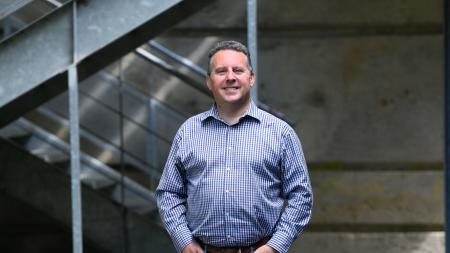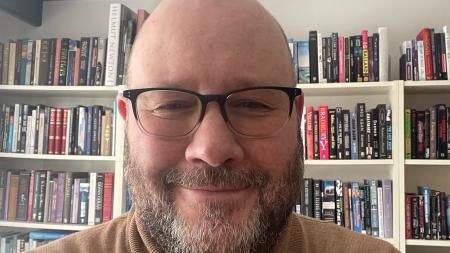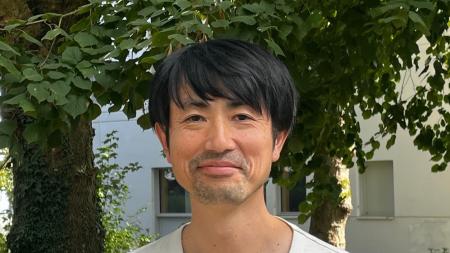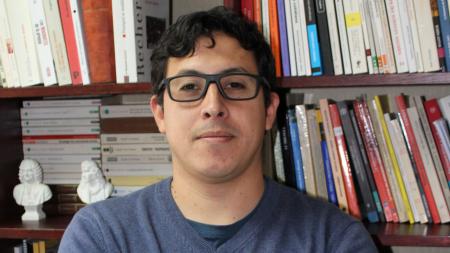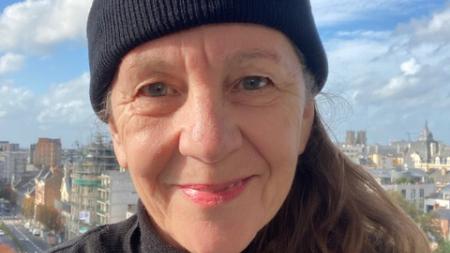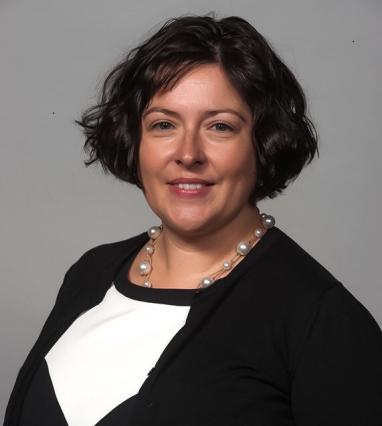
As a political scientist specializing on Irish politics, Dr. Theresa Reidy has published widely on Ireland’s electoral behavior and political institutions. Her research on elections and referendums has also been published in academic journals such as Electoral Studies, Parliamentary Affairs and Politics. She has given expert evidence to parliamentary committees in Ireland, and internationally and is a regular contributor to broadcast media. She is the co-editor of a number of books, including: Politics in the Republic of Ireland and How Ireland Voted. She is co-editor of the International Political Science Review since 2016, and is a former editor of Irish Political Studies. In 2023, she was the co-chair of the World Congress of Political Science, held in Buenos Aires, in July.
Could you please tell us about how the collaboration with Rennes 2 University began? Is this your first time here on our campus?
Theresa Reidy (TR): I have visited once before, but it was some time ago during a conference for the European Consortium for Political Research (ECPR). They're a pan-European Political Science Association that supports and encourages the training, research and cross-national cooperation of thousands of academics and graduate students specializing in political science and all its sub-disciplines. They had a conference in Rennes in 2008 and Rennes 2 was a part of the organization at the event so that was my first experience here and it went really well. So when I had the opportunity to return, I was delighted to be able to do so.
I met Dr. Lesley Lelourec, Rennes 2 Senior Lecturer in English and Irish Studies, a few years back. As she’s also a political scientist, we had the opportunity to exchange at the annual meeting of the Political Studies Association of Ireland (PSAI) and subsequently on the work she’s done on politics in Northern Ireland. We also have a few common connections through university colleagues who have participated in various collaborative projects. For example, University College Cork and Rennes 2 have developed a stronger relationship more recently since the creation of the Wild Atlantic Alliance, a grouping of Breton universities (Université de Bretagne Occidentale, Université Bretagne Sud, Université de Rennes and Université Rennes 2) and Irish universities of the Atlantic coast (University College Cork, University of Galway and University of Limerick) that aim to create cooperative projects in higher education.
What are some of the activities you’ll be undertaking while here in Rennes?
TR: I’m holding classes for both undergraduate students and graduate students. I’ve actually just finished an afternoon of teaching. I had a great discussion with classes of the English Studies Department as well as the Social and Economic Administration Department (AES). We talked about political culture and particularly social transformation in Ireland. There were maybe 50 or 60 students in each class and they were very open and engaging. I’m also holding another similar class in the next few days. And a bit later, I’ll be talking to Masters students on topics like referendums and direct democracy generally, and then more specific to the Irish case (as we have a lot of referendums) and probably connecting some of it to Northern Ireland as well. So I have a number of classes in which I’ll be delivering in conjunction with Rennes 2 faculty members.
I’m also here working with the ACE and ARENES research centers. In coordination with ACE, I’ll be presenting at a symposium titled: The Good Friday Agreement After 25 Years: achievements, shortfalls and opportunities. There are five other speakers as well, from Rennes 2, other French universities, the US and Northern Ireland. My presentation during the conference will be looking at the Republic of Ireland, post-Brexit, and discussions around attitudes to unification and the political status of Northern Ireland, but also specifically about the process by which that might happen -so deliberative forums and referendums. But I'm also quite skeptical that this is an imminent possibility. Brexit has changed things, but it’s unlikely that unification is something that we will be addressing anytime very soon. This is most likely a question for the decades rather than for the next 2 to 3 years. These kinds of attitudes and these kinds of processes take a very long time.
What are some of the research topics that you’re currently working on?
TR: I work on general elections, particularly voting behavior at elections and referendums, so I'm preparing for the next general election, which we're expecting in the next twelve months. I've also been working a lot on the abortion referendums. In addition to that, there is a gender referendum coming up in March that I'm preparing to do some work on as well.
I’m also involved in comparative research and am a partner in a European Commission funded research project exploring the voting rights of mobile EU citizens across the bloc, called Mobile EU.
